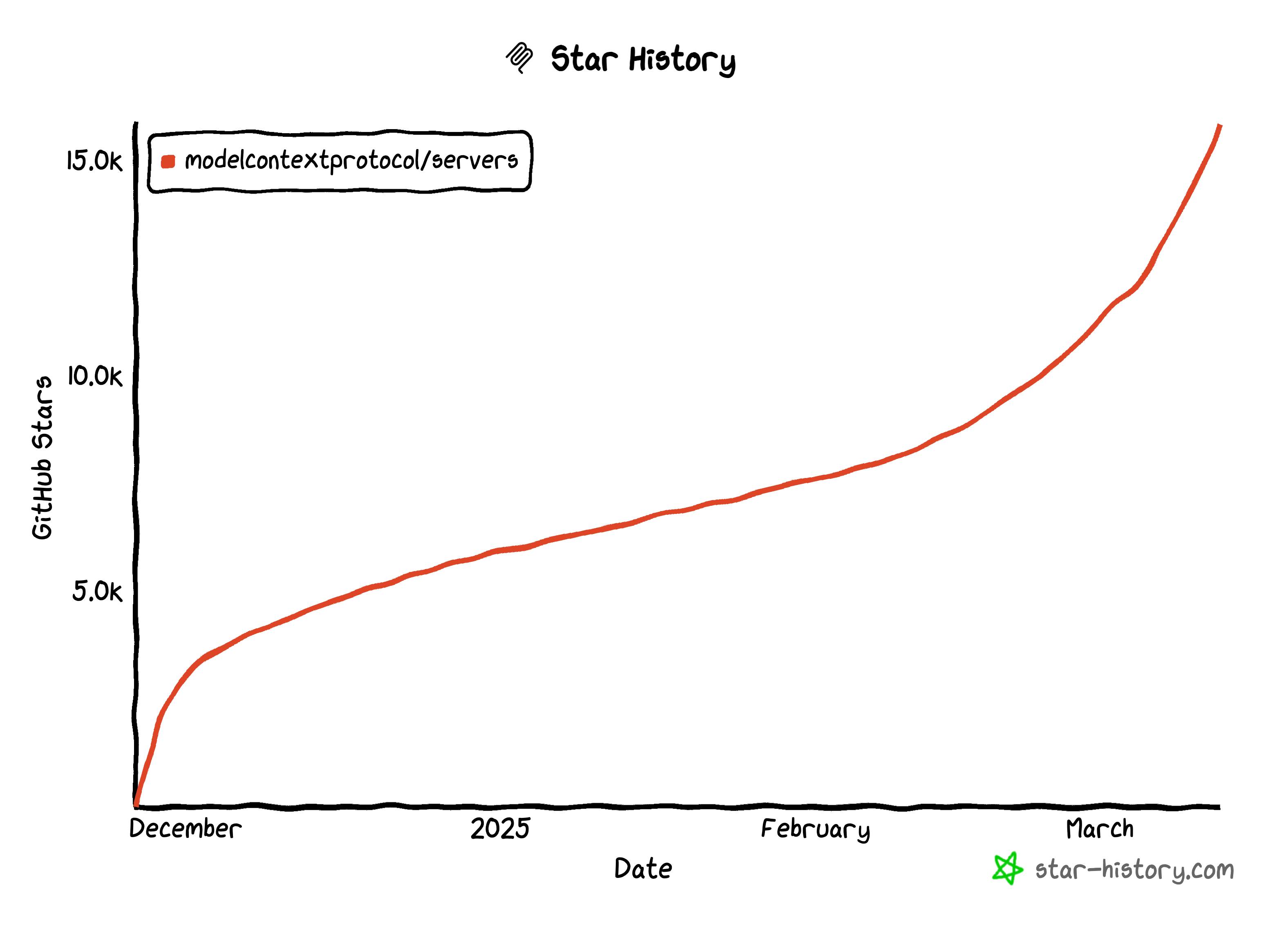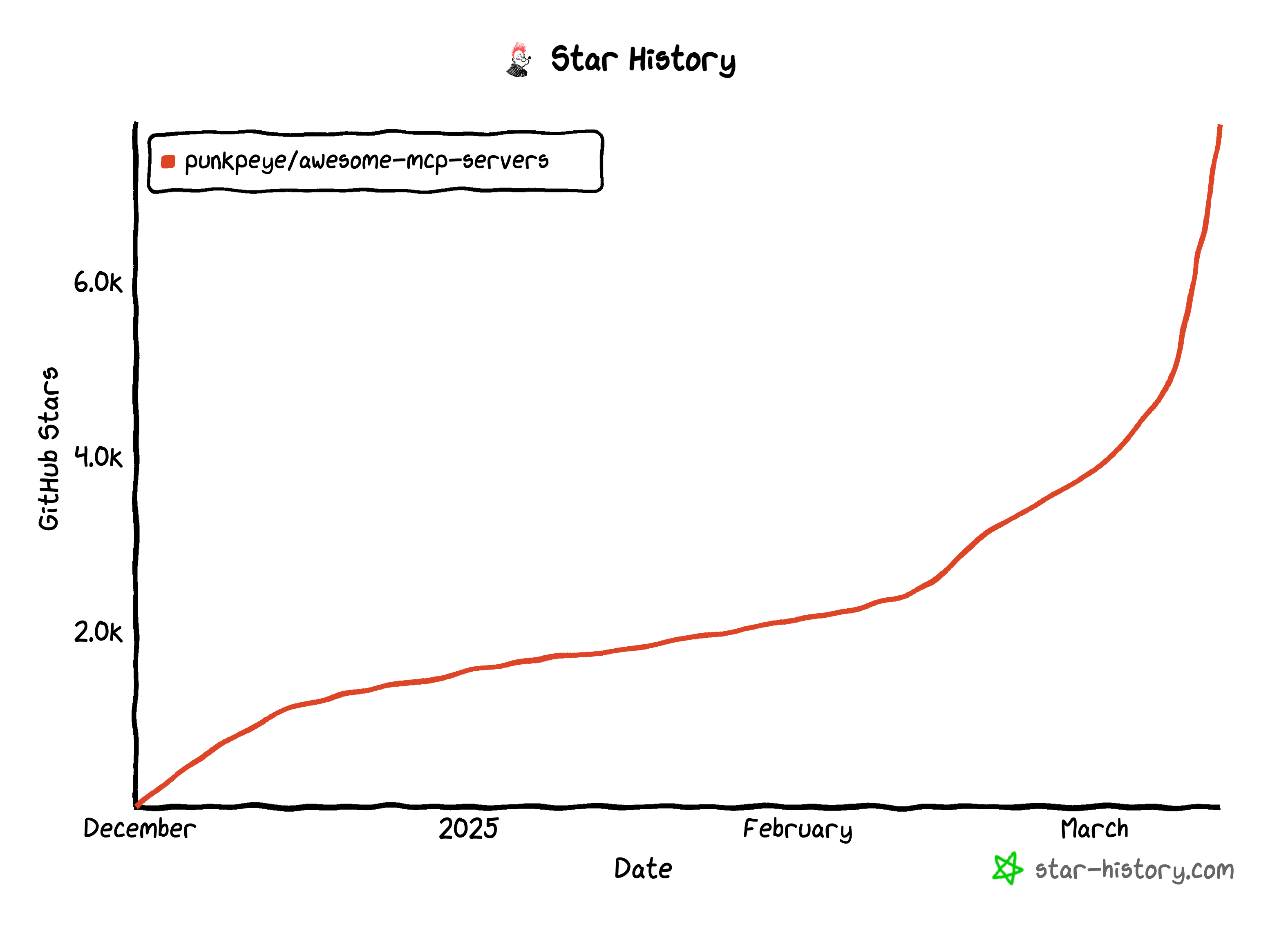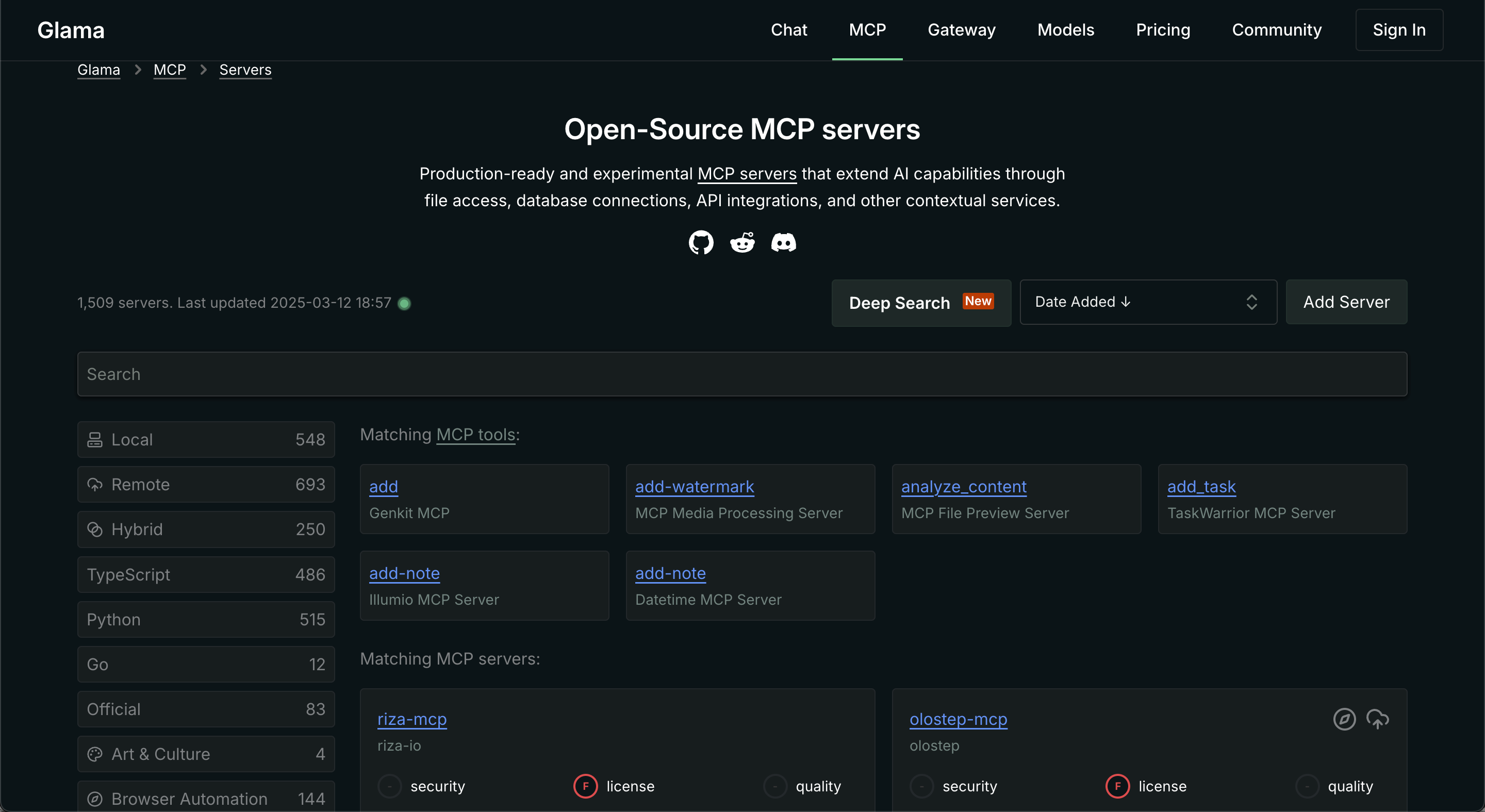
Star History Monthly March 2025 | MCP Server
The Model Context Protocol (MCP) is an open standard that enables AI models to safely access and interact with various data sources. It creates a standardized way for large language models (LLMs) to retrieve context from external systems in a secure, controlled manner. By acting as a bridge between AI models and data services, MCP helps solve critical challenges in AI applications including data freshness, hallucination reduction, and controlled data access.
For a detailed MCP explanation, check out What is MCP? - A Primer.
MCP servers act as intermediaries that translate AI model requests into specific data source operations. Here are several notable implementations:
- DBHub - Database MCP Server
- Filesystem MCP Server
- Brave Search MCP Server
- Awesome MCP Servers Collection
DBHub - Database Explorer
DBHub by Bytebase is a specialized MCP server that connects AI assistants to database systems. It enables LLMs to interact with structured data through SQL in a secure and controlled manner.

DBHub supports multiple database engines including MySQL, PostgreSQL, SQL Server, and SQLite, allowing AI models to execute queries, explore schemas, and analyze results. Its architecture provides fine-grained access control and query validation to prevent security risks. This implementation is particularly valuable for data analysts, database administrators, and developers who want to leverage conversational AI interfaces for database operations while maintaining appropriate security boundaries.
Filesystem MCP Server

Filesystem MCP Server provides a simple yet powerful implementation that enables AI models to access local files and directories. It transforms your file system into a contextual knowledge base that LLMs can query directly.
This server implementation allows AI assistants to read files, navigate directories, and extract information from various document formats. It's particularly useful for knowledge workers who need AI assistance with local document repositories, code bases, or personal knowledge management systems. The filesystem server maintains strict access controls, ensuring that AI models can only interact with explicitly allowed paths and file types.
Brave Search MCP Server
Brave Search MCP Server connects AI models to Brave's privacy-focused search engine, providing real-time information retrieval capabilities beyond an LLM's training cutoff date.
This implementation enables AI systems to perform web searches on demand, retrieving current information while maintaining user privacy. It supports various search parameters including region-specific results and safe search filtering. By integrating with Brave Search, AI models can provide answers grounded in the latest available information, significantly reducing hallucinations when responding to queries about recent events, evolving topics, or time-sensitive data.
Awesome MCP Servers Collection

Awesome MCP Servers is a curated list of Model Context Protocol implementations, tools, and resources. It serves as a central hub for discovering various MCP server options across different domains.

This collection includes implementations for diverse data sources such as web APIs, knowledge graphs, vector databases, and specialized tools. Each entry typically includes information about supported features, installation instructions, and use cases. For developers looking to implement MCP in their projects, this repository provides valuable starting points and reference implementations that can be adapted to specific requirements.
Lastly
The Model Context Protocol represents a significant advancement in the AI ecosystem by standardizing how models interact with external data sources. As these implementations demonstrate, MCP servers can unlock powerful capabilities across diverse domains - from local file access to web search and database operations.
By adopting MCP, developers can build more reliable, transparent, and capable AI applications that combine the reasoning abilities of large language models with up-to-date information from specialized data sources. As the ecosystem continues to evolve, we can expect to see even more innovative implementations that expand the frontier of what AI systems can accomplish.
📧 Subscribe to our weekly newsletter here.


